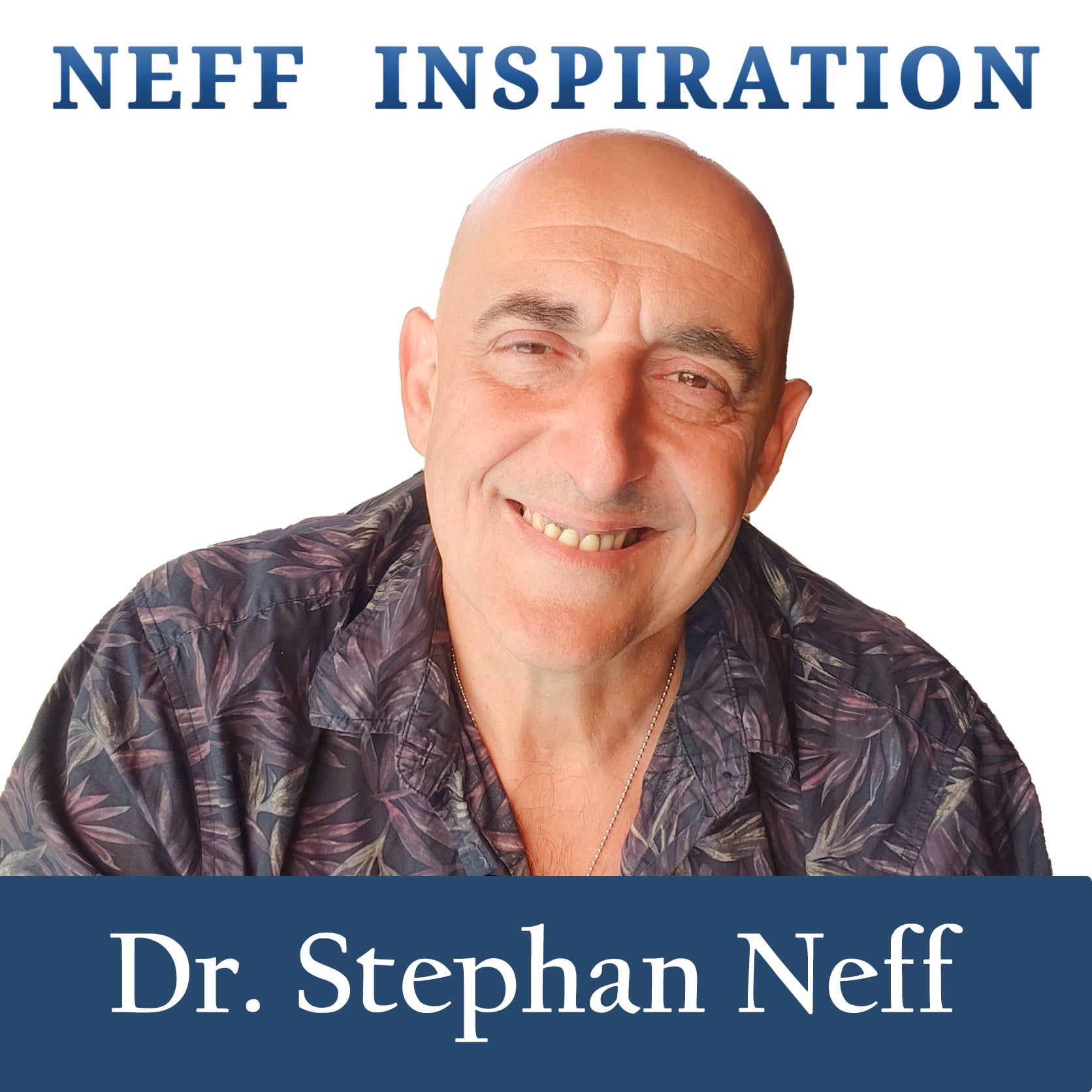
40.9K
Downloads
594
Episodes
Welcome to Neff Inspiration, a show dedicated to revolutionizing your health through the lens of functional medicine. Hosted by a functional medicine practitioner, this platform delves into the science of healing from the inside out. Whether you’re seeking solutions for mental health, trauma recovery, or overcoming addiction, I provide actionable tools and expert insights to help you transform your life. With a focus on root-cause medicine, sustainable wellness strategies, and personal growth, I aim to inspire you to become the best version of yourself. Join me in redefining health, one powerful conversation at a time.
Episodes
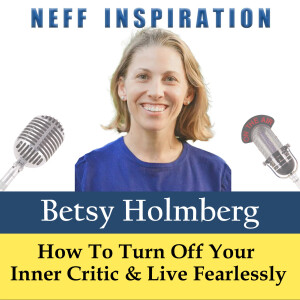
Friday Jun 13, 2025
550 Betsy Holmberg - How to Turn Off Your Inner Critic and Live Fearlessly
Friday Jun 13, 2025
Friday Jun 13, 2025
🔴 How to Turn Off Your Inner Critic and Live Fearlessly | Interview with Betsy Holmberg, PhD
Are you tired of that relentless voice in your head telling you you're not good enough? In this powerful episode, I sit down with Dr. Betsy Holmberg, an award-winning psychologist and expert in overthinking and negative self-talk. With a background at McKinsey & Company, Harvard, and Duke University, Betsy has helped countless people break free from their inner critic and step into their true, fearless selves.
🔥 In this interview, we uncover:
✔️ Where self-judgment really comes from (hint: it's an ancient survival mechanism!)
✔️ How to separate your true self from your critical thoughts
✔️ Why focusing on what truly matters can silence your inner negativity
This conversation will change the way you think about yourself—and help you start living with more confidence, freedom, and authenticity.
📖 Preorder her book now ➡️ https://a.co/d/dmK3R6d
🎙️ Follow Betsy Holmberg:
🔹 Instagram: @betsyholmberg
🔹 LinkedIn: Elizabeth Holmberg
✨ Let’s rewrite the story in your mind—starting today! Hit LIKE, SUBSCRIBE, and drop a comment below: What’s one thing your inner critic has told you that you now know isn’t true?
#InnerCritic #MentalHealth #Depression #Anxiety #Overthinking #SelfGrowth
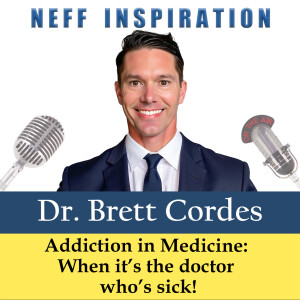
Tuesday Jun 10, 2025
549 Brett Cordes: Addiction in Medicine: When It’s the Doctor Who’s Sick!
Tuesday Jun 10, 2025
Tuesday Jun 10, 2025
🔥 Addiction in Medicine: When It’s the Doctor Who’s Sick! | Dr. Brett Cordes
🩺 What happens when the healer becomes the one who needs healing? In this powerful interview, I sit down with Dr. Brett Cordes, a former ENT surgeon whose career was derailed by substance abuse. After completing treatment and embracing mindfulness, self-awareness, and the 12-step program, he not only rebuilt his life but discovered a new passion—helping other physicians navigate burnout and addiction.
🎙 In This Episode, We Discuss:
✅ The unique challenges doctors face when seeking addiction treatment (including state board involvement)
✅ Why high-achievers don’t have to be limited to just one career in their lifetime 🔄
✅ The many paths to recovery—because there’s no single "right way" to heal 🙌
💡 Today, Dr. Cordes is a certified physician coach, helping doctors overcome burnout, mental health struggles, and substance use. His journey is an inspiring testament that recovery is possible, and a new purpose can emerge from struggle. 🌟
🔗 Connect with Dr. Brett Cordes:
🌐 Website: The Burnout Doc
📸 Instagram
📘 Facebook
🔗 LinkedIn
💬 If you or someone you know is struggling with addiction or burnout, this conversation is a must-watch.
Hit 👍 LIKE, 🔔 SUBSCRIBE, and 📢 SHARE to help spread awareness and support mental wellness in medicine!
#PhysicianBurnout #AddictionRecovery #Alcoholism #MentalHealthAwareness #Wellness #DoctorsHelpingDoctors
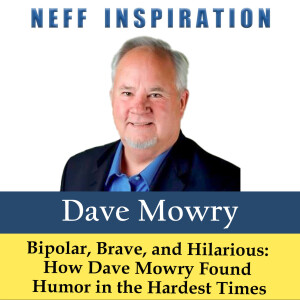
Friday Jun 06, 2025
Friday Jun 06, 2025
Healing with Humor: What, Why, and How | Interview with Dave Mowry
In this inspiring and laughter-filled interview, we sit down with Dave Mowry, a comedian, author, and mental health advocate who turned his battle with bipolar disorder and severe anxiety into a journey of healing through humor.
Once a successful businessman, Dave lost everything due to his mental illness. After 14 years of struggle, he took a stand-up comedy class designed for people with mental health challenges—and it changed his life. Now, he teaches comedy as a tool for healing, helping others find hope, connection, and laughter in their experiences.
💡 In this interview, Dave shares:
✔️ How humor helped him take control of his mental health
✔️ The power of storytelling to shatter stigma
✔️ His journey from suffering in silence to inspiring millions
✔️ Practical tips for finding light in the darkest moments
🔥 Top 3 Takeaways from Dave:
1️⃣ Acceptance without resignation – A diagnosis doesn’t define you.
2️⃣ Recovery is possible – Even after trauma and loss, healing can happen.
3️⃣ Humor transforms pain – Asking, “Where can I find the humor in this?” can shift everything.
📖 Read Dave’s powerful blog on bphope.com and check out his best-selling book, OMG That’s Me! which has helped over 17,000 people feel less alone.
🔗 Connect with Dave:
🌍 Facebook: facebook.com/davemowry2
💼 LinkedIn: linkedin.com/in/dave-mowry-2153925a
📢 Newsletter: omgthatsme.substack.com
548 Dave Mowry: Bipolar, Brave and Hilarious: How Dave Mowry Found Humor in the Hardest Times
🎬 Watch now and discover how laughter can be a powerful tool for healing, resilience, and breaking the silence around mental illness! 💙 #MentalHealthAwareness #HealingWithHumor #ComedyForRecovery
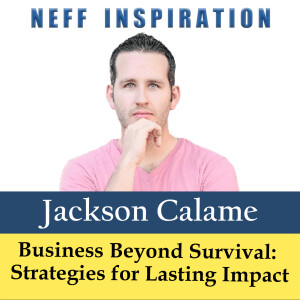
Tuesday Jun 03, 2025
547 Jackson Calame: Business Beyond Survival - Strategies For Lasting Impact
Tuesday Jun 03, 2025
Tuesday Jun 03, 2025
🔹 96% of businesses fail within 10 years—how can you avoid being one of them?
🔹 Jackson Calame helps visionary entrepreneurs unlock sustainable growth and build power brands that lead their markets.
🔹 Having launched & scaled multiple startups in B2B & SaaS, he knows the pitfalls that even the best operators face—and how to bridge the gaps to success.
🎯 Key Takeaways from This Interview:
✅ The #1 mistake businesses make that leads to collapse
✅ How to build a strong foundation for long-term growth
✅ Why personal growth & leadership shifts are essential for success
✅ The power of accountability—and why tough decisions are necessary
💡 Top 3 Business Growth Strategies:
1️⃣ Mastering Communication at the C-Suite Level
2️⃣ Cultivating Leadership Excellence in Executives
3️⃣ Turning Team Challenges into Championship Opportunities
🚀 If your business is ready for a powerful shift, Jackson and his team are the key players you need to make it happen!
🔗 Connect with Jackson:
📍 LinkedIn: @jacksoncalame
📸 Instagram: @jacksoncalame
📘 Facebook: @jacksoncalame
🐦 Twitter: @JacksonCalame
🎥 Watch Now & Transform Your Business! 🔥 #Entrepreneurship #BusinessGrowth #Leadership
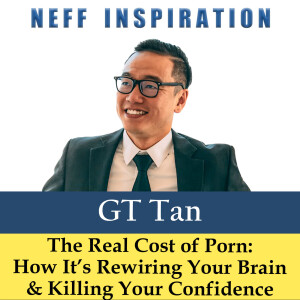
Friday May 30, 2025
Friday May 30, 2025
🔥 Breaking Free from Porn Addiction: GT Tan on Reclaiming Control & Masculinity | NEFF INSPIRATION 🎙️
In this eye-opening episode of NEFF INSPIRATION, I sit down with GT Tan, a no-BS Mental & Sexual Wellness Coach who helps men break free from porn addiction, rebuild confidence, and take back control of their lives.
GT’s journey isn’t just theory—it’s personal. Having battled porn and sex addiction himself, he knows exactly what it takes to overcome the cycle of shame, compulsive behavior, and self-doubt. Now, he’s helped over 10,000 men reclaim their masculinity and mental clarity.
We dive deep into:
✅ How porn addiction hijacks your brain and self-worth
✅ The impact of porn on relationships, confidence & mental health
✅ Practical steps to break free & regain control
✅ How to replace destructive habits with real-world success
If you or someone you know is struggling with porn addiction, this conversation is a MUST-WATCH. GT delivers raw, unfiltered insights that could change your life.
💬 What part of GT’s story resonated most with you? Drop your thoughts in the comments!
🔔 Subscribe & hit the bell for more powerful conversations!
#PornAddiction #GTtan #Masculinity #BreakFree #SelfMastery #NEFFInspiration
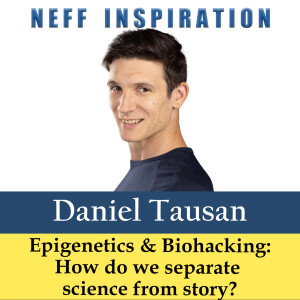
Tuesday May 27, 2025
Tuesday May 27, 2025
🔬 How Clean Blood Transforms Stress into Strength | Daniel Tausan on NEFF INSPIRATION 🎙️
In a world where marketing often masquerades as science, how do we separate fact from fiction? Join me as I sit down with Daniel Tausan, a Stem Cell Biologist and scientific consultant, to uncover the real science behind health, longevity, and resilience. 🚀
🧬 Key Topics We Discuss:
✅ Why clean blood is the key to thriving in stress and aging like a champ
✅ The epigenetics & biohacking secrets that cut through the noise
✅ How to turn on your body's regenerative factors for peak performance
✅ The hidden dangers of marketing-driven health myths
Daniel has worked at the cutting edge of molecular exercise profiling and now helps individuals and clinics bridge the gap between novel biotech and real human health through his consultancy, Timeline Sciences.
🔥 Don't miss this deep dive into science-backed strategies for resilience, disease prevention, and longevity!
🔔 Subscribe & hit the bell so you don’t miss more expert insights!
#Biohacking #Epigenetics #HealthScience #Longevity #DanielTausan #NeffInspiration
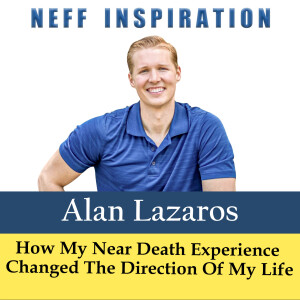
Friday May 23, 2025
Friday May 23, 2025
In this powerful interview with Alan Lazaros, we dive deep into his incredible journey of transformation. From experiencing the devastating loss of his father at age 2 to surviving a near-fatal car accident at age 26, Alan faced life-altering challenges that led him to question everything. Filled with regret and at his lowest point, he discovered two life-changing resources: Bronnie Ware’s The Top 5 Regrets of the Dying 📚 and a transformative TED Talk by Tony Robbins 🎤. These sparked a profound shift, guiding him to go all-in on self-improvement and design a life of meaning and purpose ✨.
Alan now leads a global team at NLU 🌍 and has dedicated his life to helping others design fulfilling lives and align their businesses with their unique potential 💼. With expertise in peak performance, productivity, and business optimization 💪, he shares actionable insights on consistency 🔄, daily habit tracking 📅, and the compound effect 💥. Whether you’re looking to improve your personal life, health, wealth 💰, or business, this interview is packed with inspiration and practical advice on what it really takes to level up 🚀.
Don’t miss this conversation filled with wisdom, authenticity, and no-nonsense advice on reaching your next level 🔝.
544 Alan Lazaros: How my near death experience changed the direction of my life
www.facebook.com/alan.lazaros
www.instagram.com/alazaros88
https://www.linkedin.com/in/alanlazarosllc
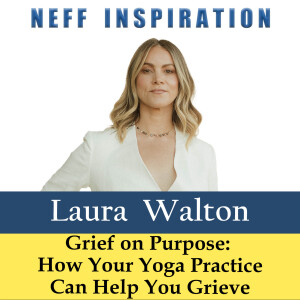
Tuesday May 20, 2025
543 Laura Walton: How Your Yoga Practice Can Help You Grieve
Tuesday May 20, 2025
Tuesday May 20, 2025
In this insightful interview, I sit down with Laura, a licensed mental health therapist, Clini-Coach®, grief coach, yoga instructor, and the founder of Grief on Purpose (formerly lovelew). 🌿🧘♀️ Laura shares her expertise on navigating grief, offering guidance to both individuals experiencing loss and their support systems. 💔🤝 We dive deep into how we can normalize grief, better understand its complexities, and explore the best ways to care for ourselves during this challenging journey. 💫 Join us as we redefine the conversation around death and grief, and learn how to embrace healing with purpose. 🌻
Don't forget to like, comment, and subscribe for more inspiring conversations on mental health, healing, and personal growth. ✨
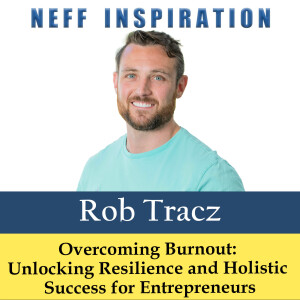
Friday May 16, 2025
Friday May 16, 2025
In this powerful interview with Rob Tracz, founder of the Prime Performance coaching program, we dive deep into overcoming burnout and unlocking resilience for entrepreneurs. 💪🔥 Rob shares his journey from burnout to balance and reveals actionable strategies to help entrepreneurs achieve holistic success—both personally and professionally. 🌱✨
Discover how Rob’s unique approach blends physical health 🏋️♂️, mental clarity 🧠, and business growth 📈. His six core principles—resilience, intentionality, clarity, organization, support, and opportunity—offer a roadmap to thrive without sacrificing well-being. 💼💚 In this conversation, Rob provides invaluable insights on building resilience, setting intentional goals, and investing in your health to avoid burnout and achieve long-term success. 🌟
Watch now to learn how you can transform your business and personal life with the Prime Performance coaching program and take the first step toward a more balanced, resilient, and fulfilling entrepreneurial journey! 🚀
3 Key Takeaways:
- Prioritize Resilience Over Hustle: Learn how to build sustainable success through resilience, not burnout. 💡
- Align Your Actions with Intentionality: Focus on what truly matters and stay on track with your long-term goals. 🎯
- Invest in Your Health: Success is about thriving in life, not just business. Find out why health is your greatest asset. 🌱💪
Don’t miss this inspiring interview! 🎥✨
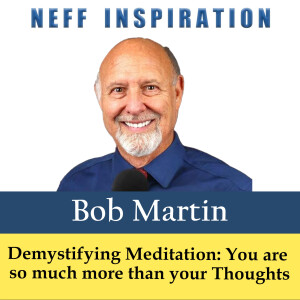
Tuesday May 13, 2025
Tuesday May 13, 2025
Tune in for an inspiring conversation with Bob Martin, whose incredible journey has taken him from a high-powered criminal trial lawyer during Miami’s Cocaine Cowboy era to a certified meditation mentor and wellness expert 🧘♂️. At 74, Bob now serves as a Professor of Wellness and Mindfulness Coordinator at Elon University 🌟. In this interview, Bob shares his wisdom on resilience, fulfillment, and living a meaningful life ✨. Learn how happiness is a skill you can develop, the true meaning of going with the flow 🌊, and why mindfulness is the key to a skillful life 🧠. You won’t want to miss this powerful story of transformation! #Mindfulness #Wellness #Transformation #Resilience #Happiness #Taoism #Inspiration
541 Bob Martin: Demystifying Meditation - You are so much more than your Thoughts
